Tagalog Word Counter
Words
0
Characters
0
Lines
0
Sentences
0
Syllables
0
Paragraphs
0
Reading Time
0 min
Speaking Time
0 min
A Tagalog word counter is a simple online tool that counts the number of words in a given text written in the Tagalog language.
Tagalog is an Austronesian language spoken in the Philippines as one of the two official languages along with English.
It is the first language of about a quarter of the population and is widely used in education, media, and daily communication.
How to Count Tagalog Word Using Our Tool?
Using the free Tagalog word counter is a straightforward process. Follow these simple steps:
